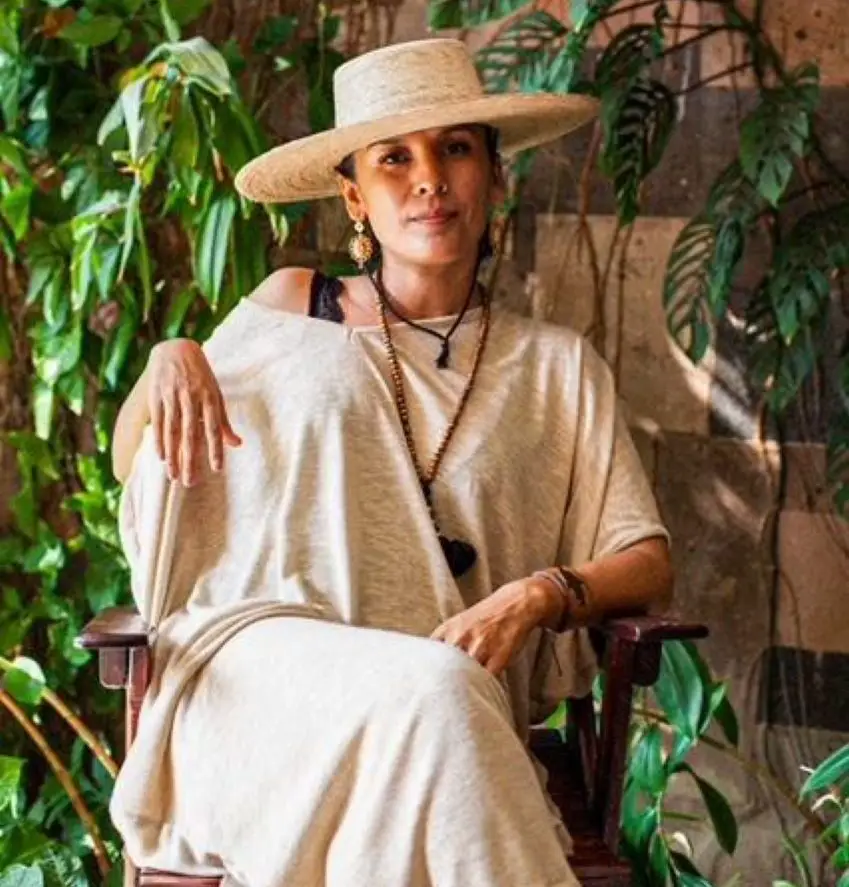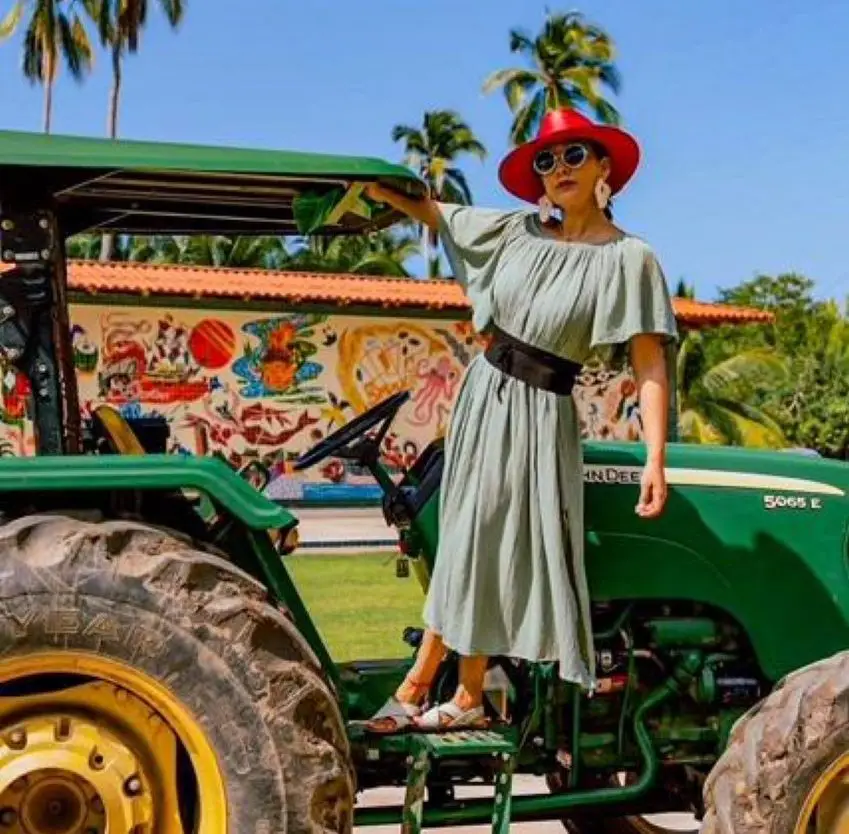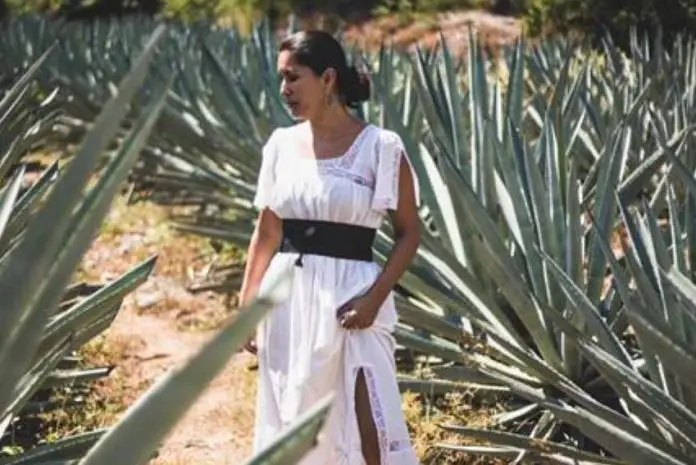Rarely one person can successfully combine the triple career of fashion designer, teacher and mezcalera, but Zayury Jiménez Torres, from the small town of Mochitlán in the mountains of Chilpancingo, proves she can.
A third-generation mezcalera, her first foray into the intricate nuances of making mezcal began at the age of three at the knee of her grandfather, Serefin Jiménez. Serefin bottled small batches to sell to family, friends and the town where they lived. Over the years, he taught his granddaughter everything about how to create a quality mezcal. Although her immediate family moved to Zihuatanejo, they returned frequently to visit, and her grandfather continued to educate her.

At the tender age of 17, Jiménez’s path led her to Seattle, Washington, where she lived for the next 12 and a half years. She enrolled at the University of Washington, where she did her thesis on the sustainability and production of mezcal. To support herself, she worked menial jobs from cleaning houses to working in retail until, upon graduating, she worked her way into stores such as Macy’s and Nordstrom as a shoe buyer. Jiménez became a U.S. citizen, married and divorced during this time. It was also when her beloved grandfather passed away. Five years later, Jiménez decided it was time to return to Zihuatanejo.
Jiménez began teaching at local public schools in the area. When they realized she was fluent in English, she became the first official English teacher in the system. The pay was bad, however, and she knew she would have to support herself in other ways to survive.
She looked to her experience in fashion.
Now remarried and with a young son in tow, Jiménez started designing her fashion line, Cultura Tropical, a beach accessories and clothing brand grown from a combination of Mexican tradition, fashion and environmentally responsible pieces. She opened her store in downtown Zihuatanejo, carrying not only her fashions and accessories but also those of other Mexican women. Her three seamstresses are all local.

“CT was created for and by women, encouraging the warrior within us all to come out, embrace our womanhood, and boldly take on our surrounding world,” she says. “As women, we must believe in ourselves and find and pursue our purpose here. To conquer and reach our dreams, we’ve got to unite and support one another. We are warriors. We are chingonas!”
Jiménez had not forgotten her love for mezcal during this time. After her grandfather’s passing, she felt the one way she could keep his spirit alive was to continue his tradition. She had approached his business associates and asked to join, but they refused. “They gave me many reasons, but the bottom line was that I was a woman, and mezcal making is a traditionally male venture,” she says. “They told me to go find my dreams, which, in hindsight, was the best advice they could have given me.”
Disappointed but undeterred, Jiménez set about creating a quality mezcal of her own. From the beginning, Jiménez’s goal was to make a great mezcal, empower women, and preserve nature and tradition – “a mezcal shared with those you love.”
Luckily, Jiménez found a business partner, Keith Forsay, an Oscar, Golden Globe and two-time Grammy award-winning English record producer. They met at a mezcal tasting event and bonded over their love of mezcal, music and dancing, vowing to create a mezcal that would bring people together to celebrate life. Together, they created Mano y Corazon, an artisanal mezcal crafted by families in Zoquitlan, Oaxaca.

Mano Y Corazon’s co-founder has made it her mission to establish a female-led team behind her mezcals, from cultivation to distillation, production, and promotion. “Every bottle of mezcal has an author. With Mano y Corazon, that signature is female.”
But Jiménez was not one to rest on her laurels yet. Remarried and with a young son, Jiménez wanted to host fashion shows to promote her designs and showcase other local designers and artisans in Mexico. The first, Tropifashion, was held in 2017 in Ixtapa. Jiménez says she was quite surprised by the response. “We decided to hold the show, and if people came, they came,” she said. “We had no idea how well people would accept it.” The event has had several editions since.
What’s next for this enterprising entrepreneur?
“Next, I want to continue fomenting culture in my village. I am getting certified this year as a yoga teacher and would like to hold yoga and wellness festivals — the same as I do with Tropifashion. I am also starting to study interior design. I have a couple of properties that I would like to fix up and rent for the season. I just want to continue learning and enjoying life with my family.”
Lofty goals? If anyone can do it, this inspirational woman can.
The writer divides her time between Canada and Zihuatanejo.
